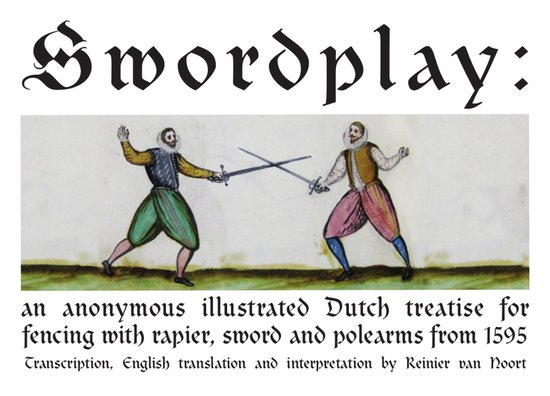Swordplay

Direct beschikbaar
Tucked away in the Newberry Library of Chicago is an anonymous manuscript entitled Schermkunst ('Art of Swordsmanship'), whose brief text and exquisite watercolours details fencing with the single sword, rapier and dagger, rapier and buckler, halberd, and full pike. Beyond its artistic charms, however, this little book of 1595, is one of the oldest known martial arts treatises from the Low Countries and gives us a glimpse into the Art of Defense as it was practiced at a particularly volatile time in Netherlands history. Rebellion against Philip II of Spain led to independence of the Calvinist Northern provinces from Catholic Spain, and in the same year, the spice trade expedition Cornelis de Houtman set into motion events culminating in the formation of the Dutch East India Company, and a golden age of Dutch history that spanned the 17th century. This cultural and political foment is represented in the similarities between the methodology in Schermkunst and the rich traditions of England, Germany and Italy, and the inclusion of several sword and shield techniques combat representing that quintessential bogey-man of Renaissance Europe: the Ottoman Turks.
Translated and contextualized by respected Dutch swordsman and fencing researcher, Reinier van Noort, The Art of
Swordplay is sure to please martial artist and military historian alike.
- 1 Bekijk alle specificaties
Taal: en
Bindwijze: E-book
Oorspronkelijke releasedatum: 12 november 2015
Ebook Formaat: Adobe ePub
Hoofdauteur: Reinier van Noort
Hoofduitgeverij: Freelance Academy Press
Lees dit ebook op: Desktop (Mac en Windows)
Lees dit ebook op: Kobo e-reader
Lees dit ebook op: Android (smartphone en tablet)
Lees dit ebook op: iOS (smartphone en tablet)
Lees dit ebook op: Windows (smartphone en tablet)
Studieboek: Nee
EAN: 9781937439293